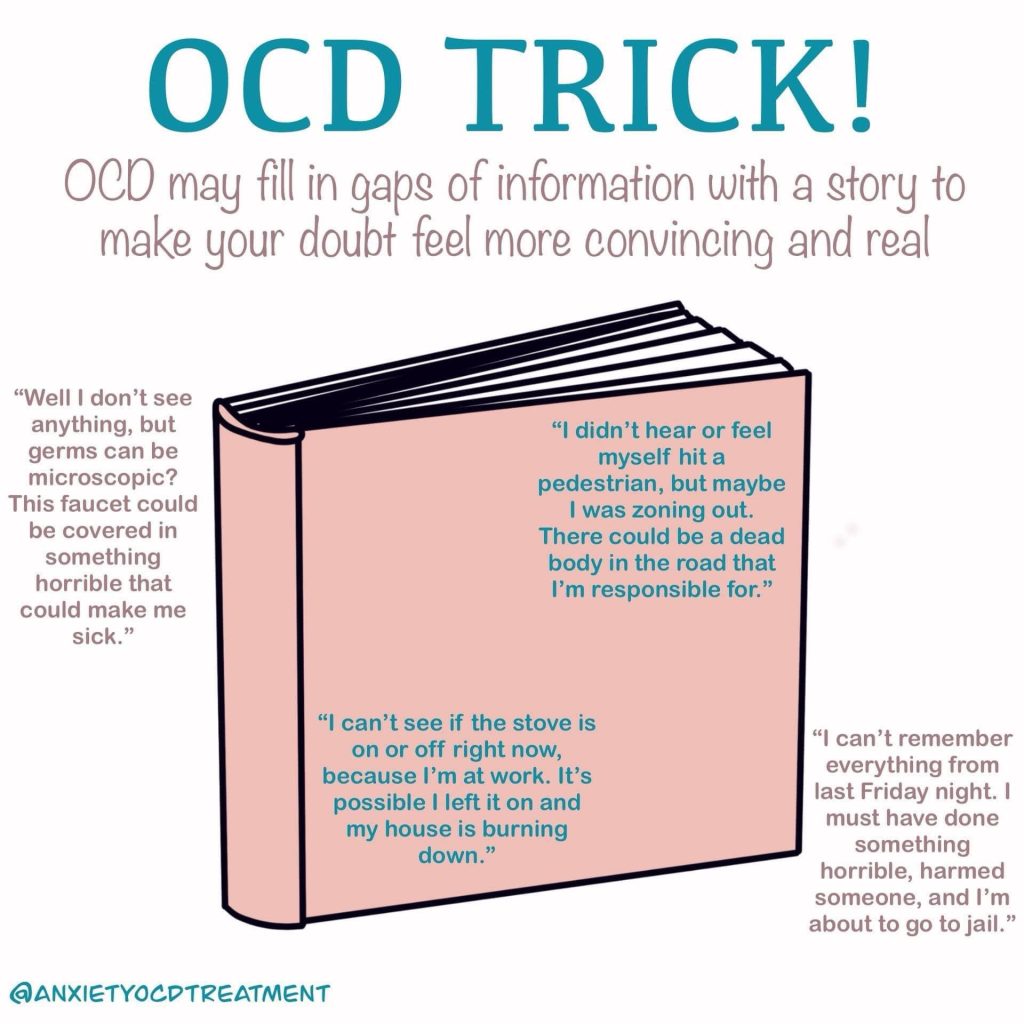
Most of us think of OCD in terms of hand washers or people who engage in specific compulsive behaviors.
However, many mental compulsions are also a part of OCD.
Mental compulsions or safety behaviors (things we do to reduce anxiety) might include reassuring ourselves that things will be okay, analyzing our fears to see whether they make sense, overanalyzing decisions, reading into our thoughts and feelings (for example, if I’m feeling frustrated with my child, this might mean I’m an abusive parent), second-guessing ourselves, or even beating ourselves up (as a distraction from OCD thoughts or to neutralize them). Additionally, OCD can lead to avoiding triggers such as reading about scary topics (like cancer or the news) or trying to suppress certain thoughts because they may trigger anxiety.
People with OCD often have active imaginations, the ability to think ahead about possible threats, and brains that are especially good at seeing patterns and making intuitive associations between events, ideas, and experiences that others might not link together.
Being intuitive, creative, and smart—able to predict potential problems—can be assets, especially for problem-solving and generating out-of-the-box ideas. However, sometimes OCD hijacks these abilities to scare us about unlikely possibilities generated mostly by imagination. For example, OCD might prompt worries about dangerous scenarios that are invented in the mind, such as becoming violent or negligent, even when one has no history of aggression or irresponsibility.
In ICBT, we learn that our OCD themes often revolve around behaviors or characteristics that are the opposite of who we are in reality. For instance, a kind and conscientious person might fear becoming someone who harms others or acts recklessly. This can stem from trauma or stories about people losing control and causing harm.
It can be helpful for individuals with OCD to identify the arguments OCD makes and consider whether there is anything concrete in the present that substantiates these thoughts or fears. For example, if someone has never been violent, is not in imminent danger of hurting someone, has no history of recklessness, and does not wish to be violent, then imagined fears about harming someone are not relevant in the here and now, and should not be a source of avoidance or compulsion.
OCD is a painful condition and can cause significant suffering, but learning to take back control over how we respond to obsessions and imagined scenarios can help us reclaim our power, and respond in a healthier way to the hypothetical problems our imaginations create.

Leave A Comment